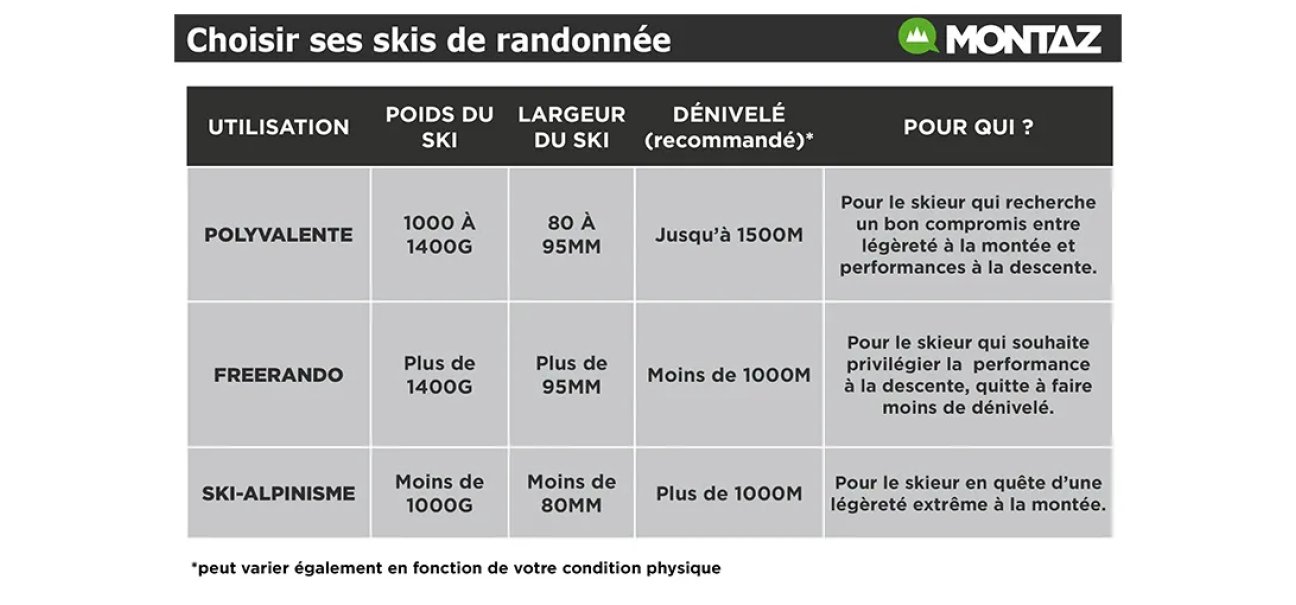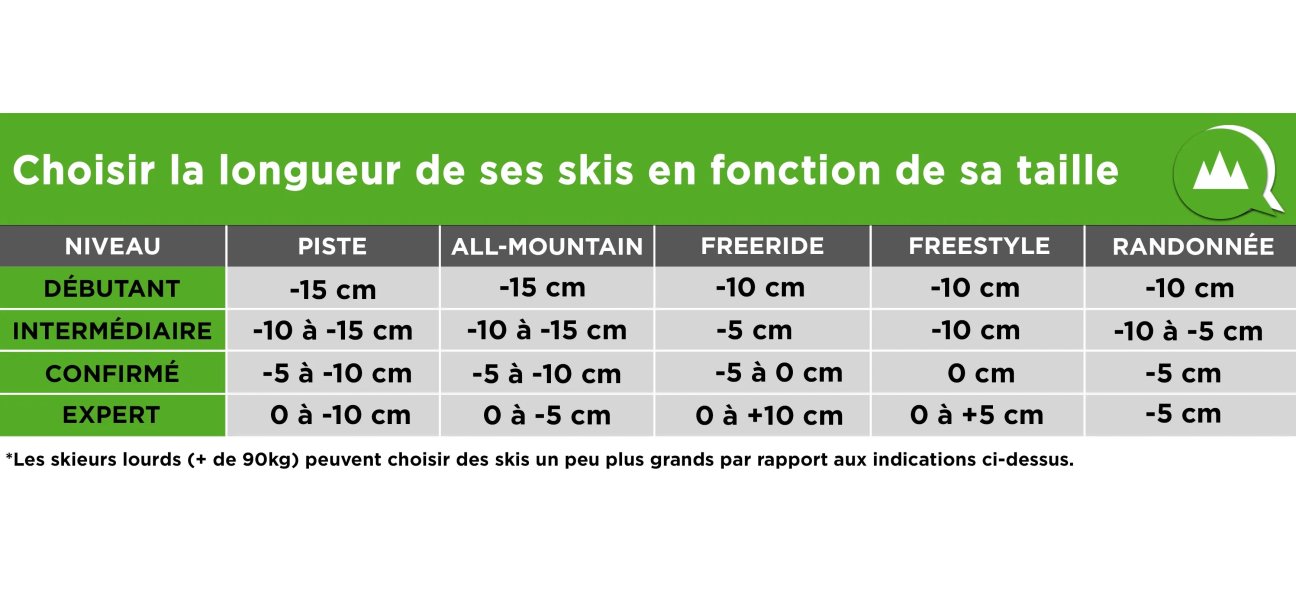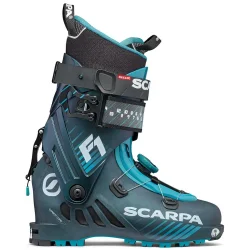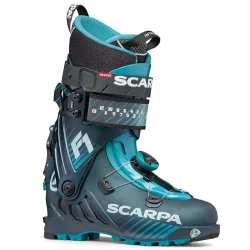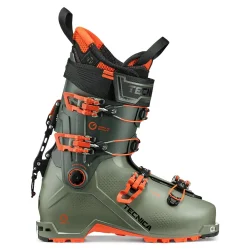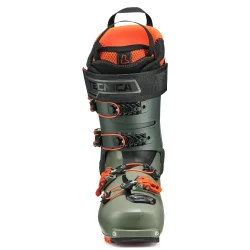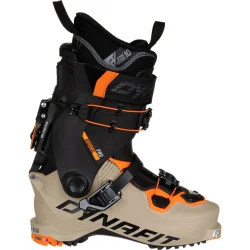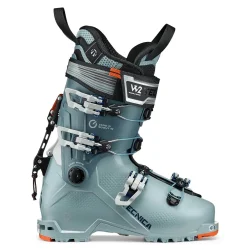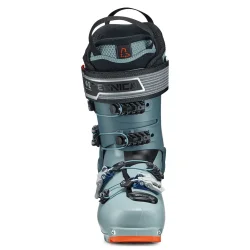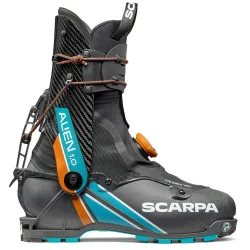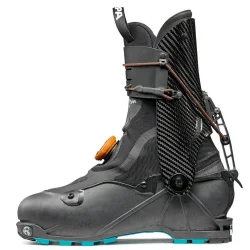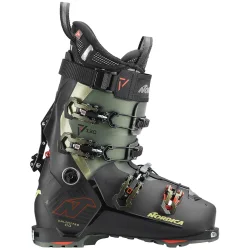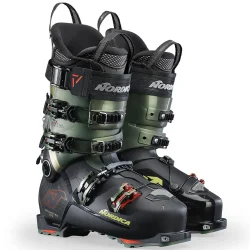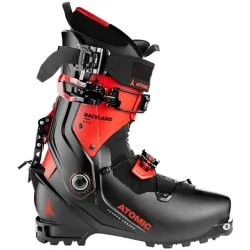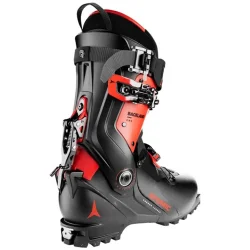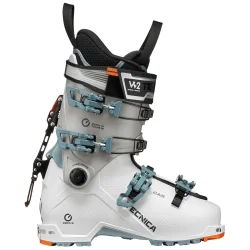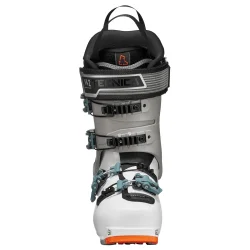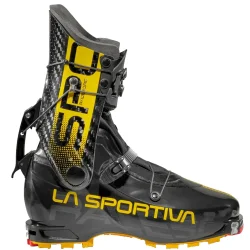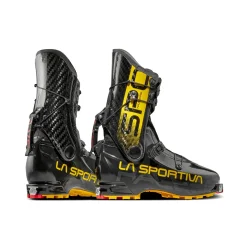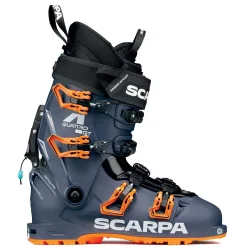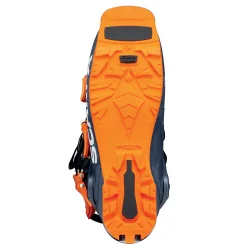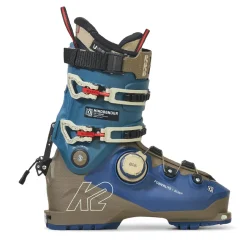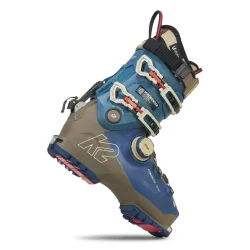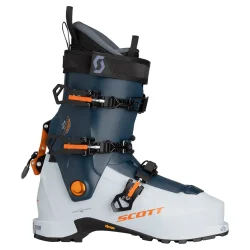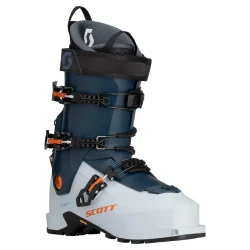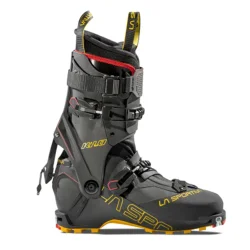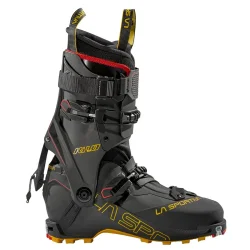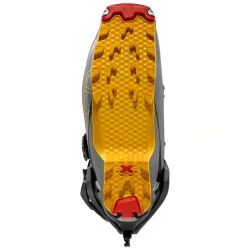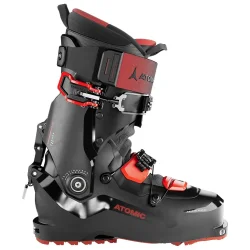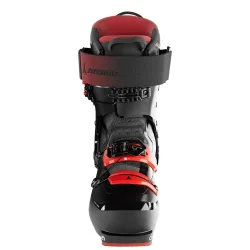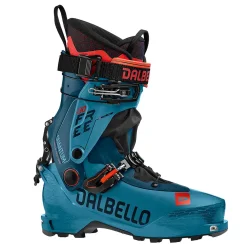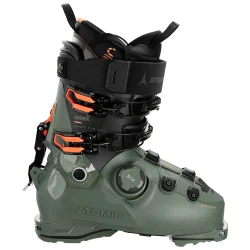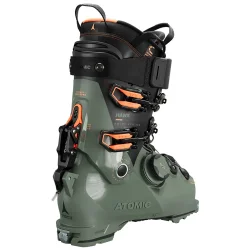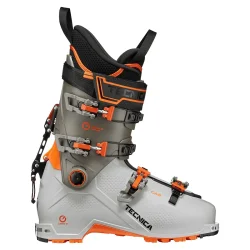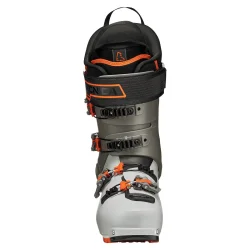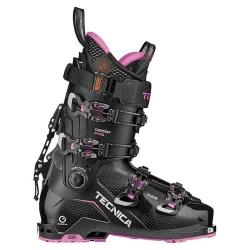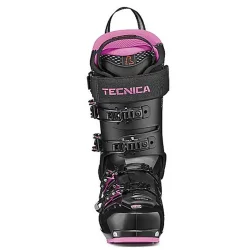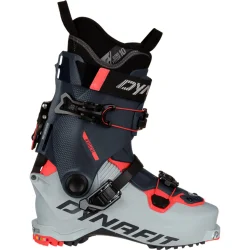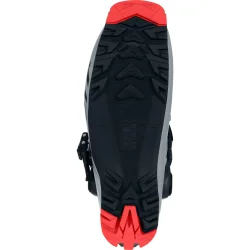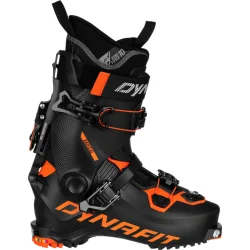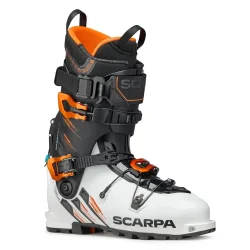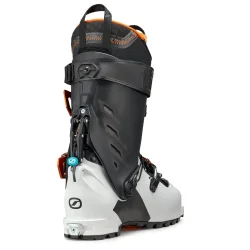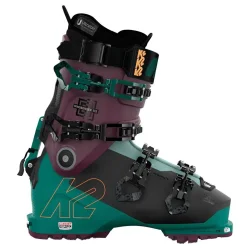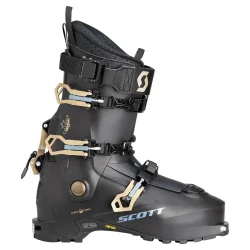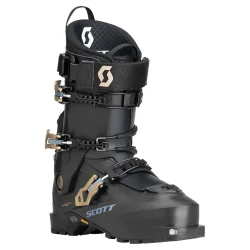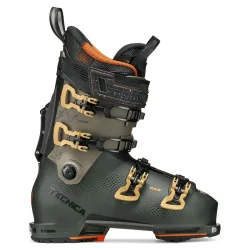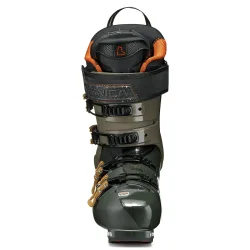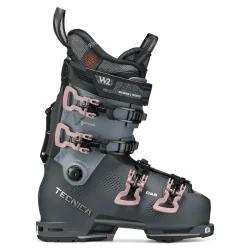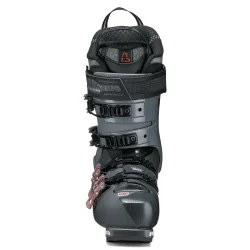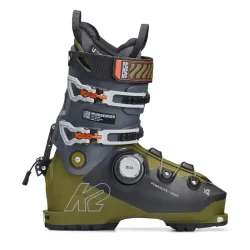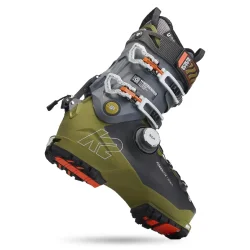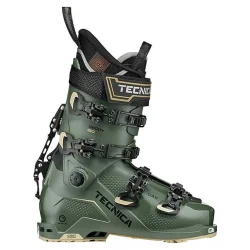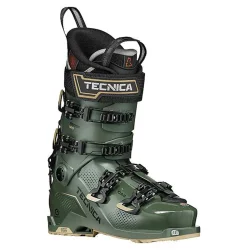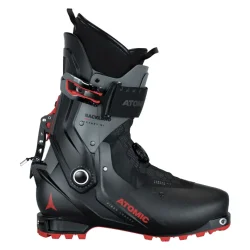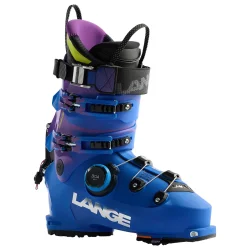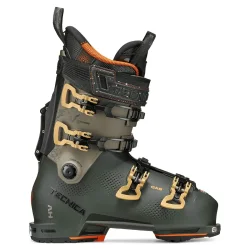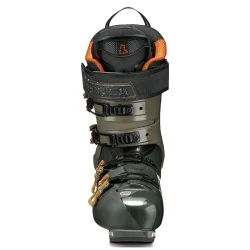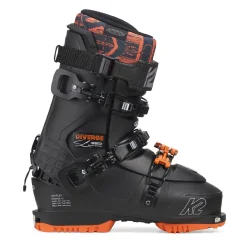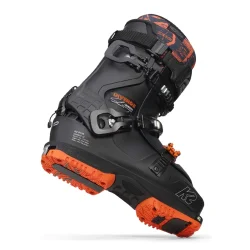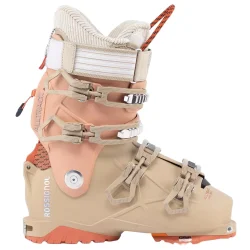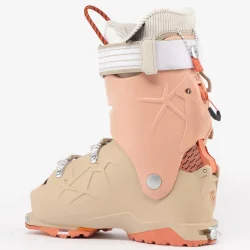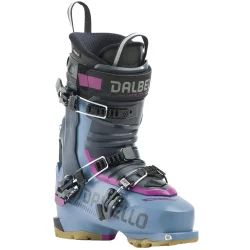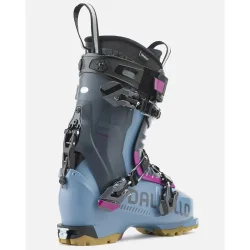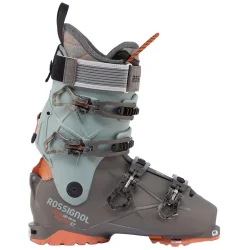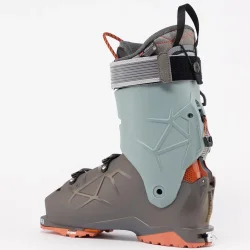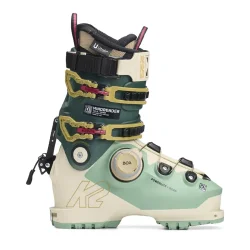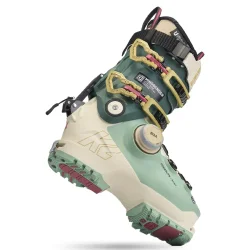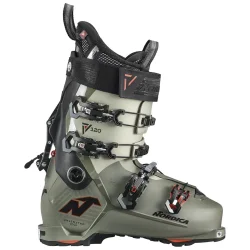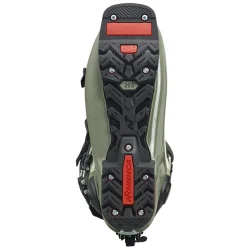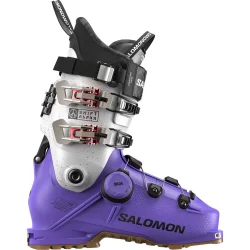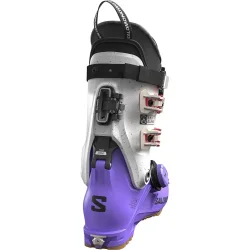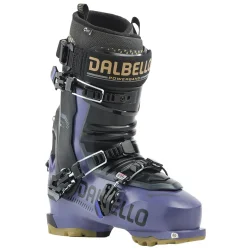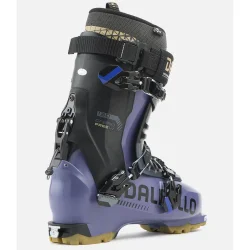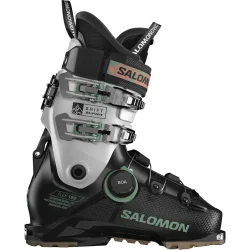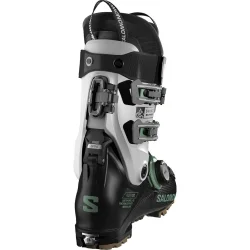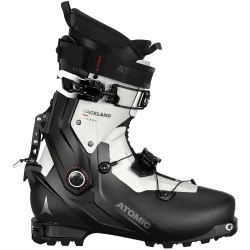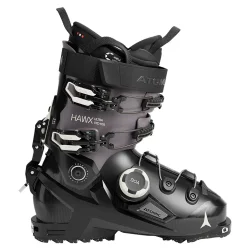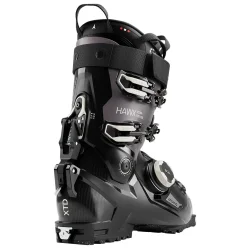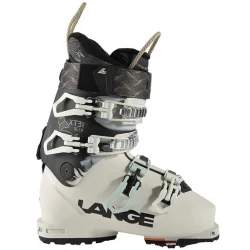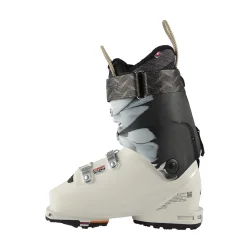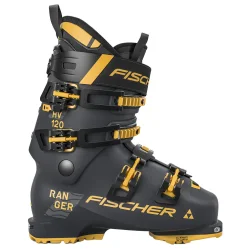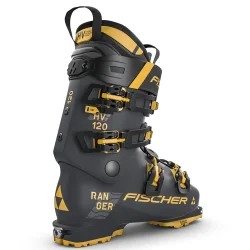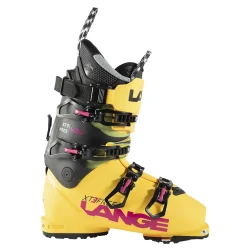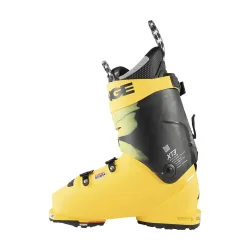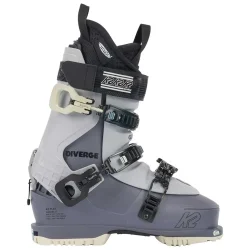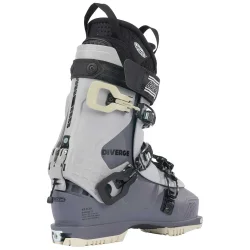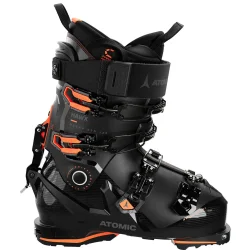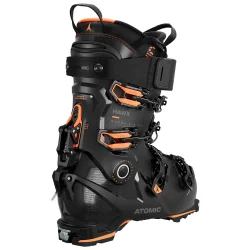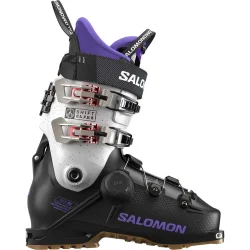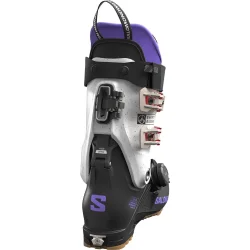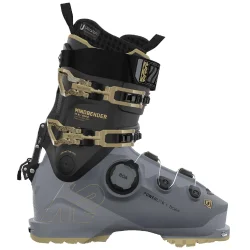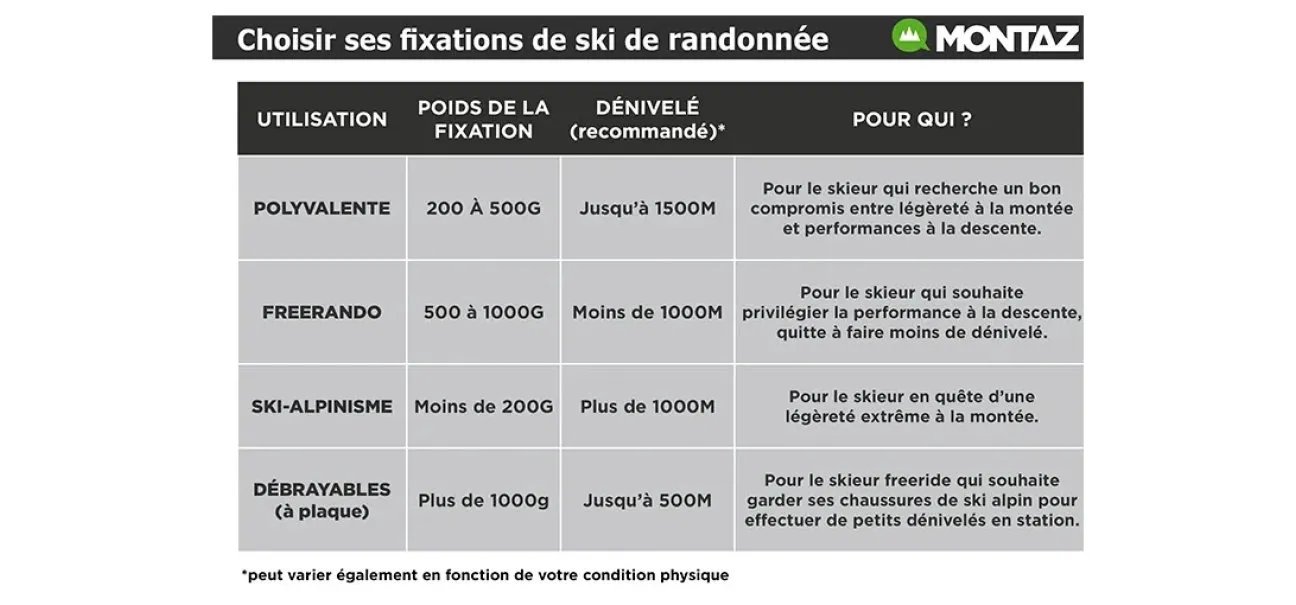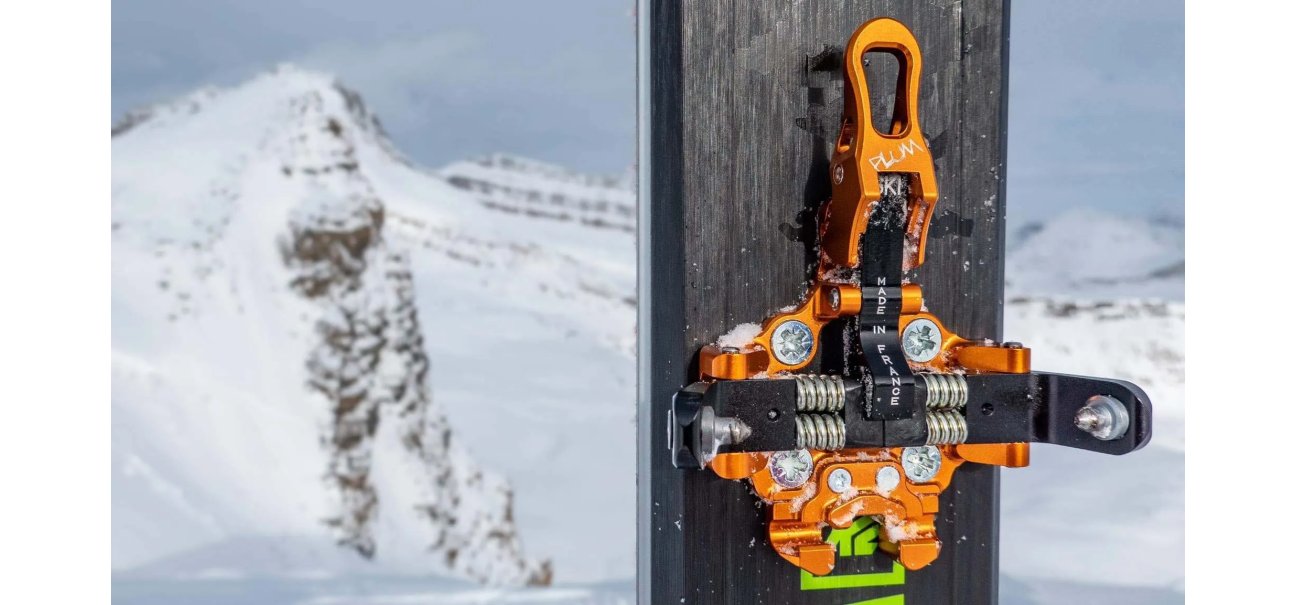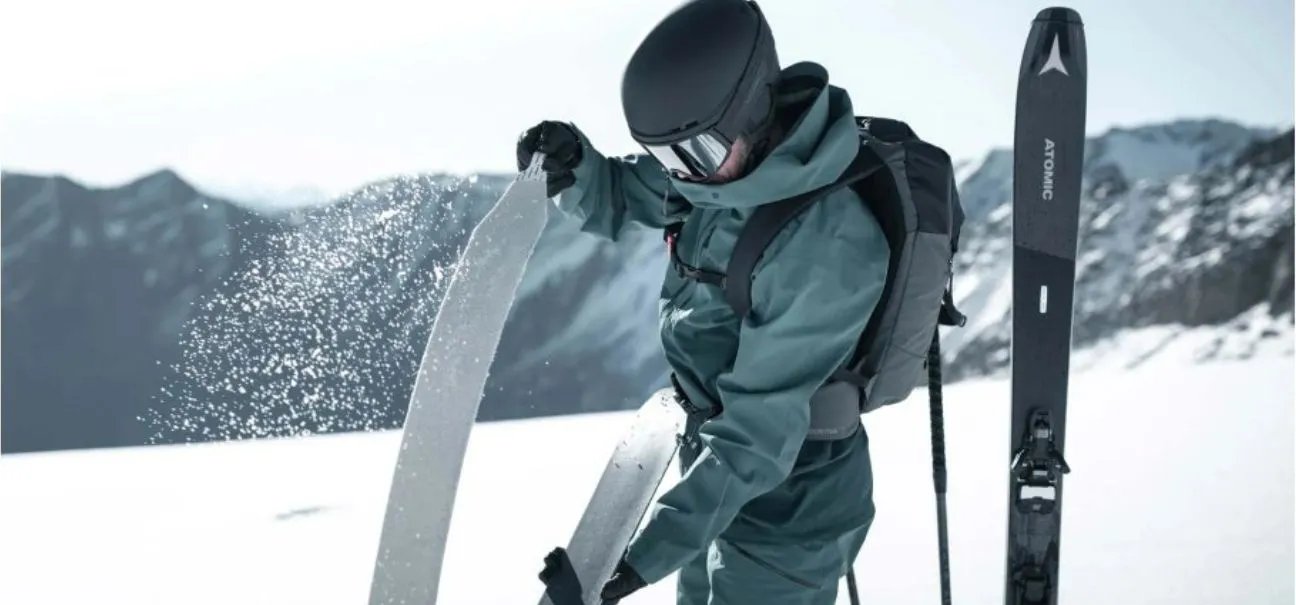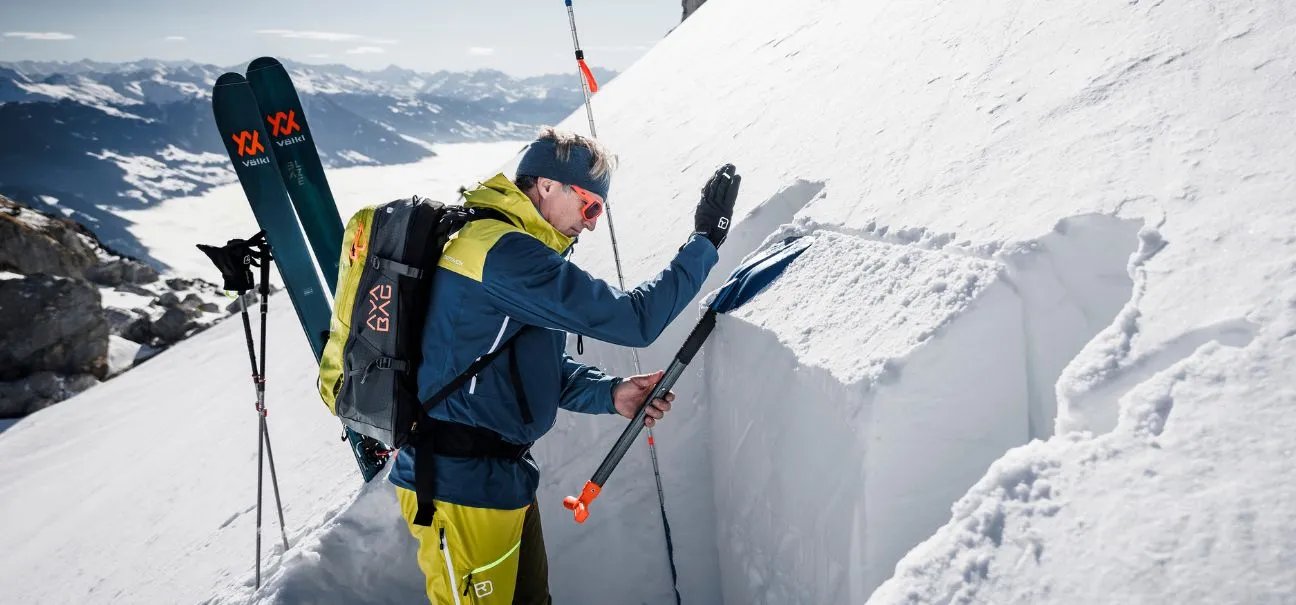Guide: How to choose the right ski touring or freeride equipment
Ski touring is one of the most comprehensive skiing activities. It requires mastery of several techniques, especially off-piste skiing. To practise it safely, good equipment is essential.
Here are the key items to take with you for peace of mind on the slopes and off-piste!
- Ski touring skis (size, weight, etc.)
- Ski touring boots
- Ski touring bindings
- Climbing skins
- Ski touring crampons
- Ski touring poles
- Safety equipment (airbag backpack, shovel, probe, avalanche transceiver, etc.)
1. Touring skis
There are different types of touring skis, each suited to a specific use :
Perfect for those who want an all-terrain option! These skis are suitable for both ascents and descents, on-piste and off-piste.
SCOTT Proguide 89
Are you more into freeride descents? These skis are made for you! Wider and designed to offer better stability when descending on deep, powdery snow! However, they are a little heavier when climbing.
BLACK CROW Navis Freebird
For versatile use, we recommend choosing a touring ski that is 10 to 15 cm shorter than your height (see table below).
For freerando skiing, a ski close to your height may also be considered.
Please note that women's touring skis are also available. These skis are slightly lighter to make climbing easier and are reinforced for maximum safety.
ZAG UBAC 89 Femme
2. Ski touring boots
The weight of your ski boots is crucial, as this is where you can save weight! But first and foremost, you need to find a pair of boots that are suited to the shape of your feet.
The main difference between alpine ski boots and ski touring boots lies in the sole and the specific inserts. These inserts, known as ‘Low-Tech’, are located at the front of the boot and allow the boot to be firmly attached to the front toe piece of the binding. They also allow the heel to be lifted during the ascent, which greatly facilitates climbing. On the descent, once the rear toe piece is engaged, the boot is held perfectly in place, just like on alpine skis.
In addition to this insert technology, ski touring boots are often made with lighter materials (such as Grilamid) and have a thinner shell and liner than alpine ski boots. The hooks are also lighter and often reduced in number, usually 2 or 3 per boot, to optimise comfort and lightness.
For women, models specially designed to fit the female foot are also available, offering a better fit and greater comfort.
As with skis, ski touring boots are available in different versions depending on the activity :
Versatile boots
Elles offrent un excellent compromis entre légèreté en montée et performances en descente, idéales pour une pratique mixte. Elles pèsent généralement entre 1,8 et 2,5 Kg la paire et comportent deux crochets (+ 1 strap).
Ce sont les chaussures de ski de rando les plus vendues sur le marché et sont les moins chères.
These boots offer an excellent compromise between lightness on the ascent and performance on the descent, ideal for mixed use. They generally weigh between 1.8 and 2.5 kg per pair and feature two hooks (+ 1 strap).
These are the best-selling ski touring boots on the market and are the least expensive.
Freerando boots
Slightly heavier, they are designed for skiers who prefer thrills on the slopes. They are perfect for smaller slopes but offer maximum enjoyment off-piste. These generally have four hooks and are slightly heavier: on average 3 kg per pair.
Ultra-light boots
These boots are mainly used for competition and mountaineering. They generally weigh between 1 and 1.6 kg per pair. These models are designed for mountaineering skiers who are looking for performance and speed on the ascent, while accepting a compromise on downhill performance.
Choosing the right ski touring boot will therefore depend on your skiing style, so take the time to clearly define your needs before investing! Boots that are too heavy will tire you out much more quickly on the ascent.
3. Ski touring bindings
Les fixations de ski de randonnée fonctionnent de manière similaire aux fixations alpines classiques pendant la descente, en maintenant la chaussure tout en la libérant lors d'une chute. Les fixations de ski de randonnée permettent au talon de bouger librement à la montée, en se fixant sur les inserts à l’avant de la chaussure comme nous l’avons évoqué précédemment.
Ski touring bindings work in a similar way to classic alpine bindings during descent, holding the boot in place while releasing it in the event of a fall. Ski touring bindings allow the heel to move freely during ascent, attaching to the inserts at the front of the boot as mentioned above.
There are four main categories of bindings :
- Versatile bindings
- Freerando bindings
- Ultra-light racing bindings
- Plate touring bindings (detachable) compatible with alpine standards
4. Les peaux de phoque
Les peaux de ski de randonnée ou peaux de phoque, sont indispensables pour pratiquer le ski de randonnée. En effet, ce sont celles-ci qui permettent l’accroche sur neige à la montée.
Ski touring skins , or sealskins, are essential for ski touring. They provide traction on snow during ascents.
The skin has two sides :
- The first side is placed against the base of the ski and adheres using glue (or without glue for some latest-generation skins: this maintenance-free system does not require re-gluing, which is sometimes necessary for skins that use glue).
- The other side, which comes into contact with the snow, prevents you from slipping during your ascent.
There are several types of ski touring skin constructions :
- 100% Mohair Skin
Made from Angora goat wool, which offers exceptional glide but is more fragile and less effective in terms of grip. This is the choice for competitors or skiers looking for fast glide.
Please note: it is essential to take good care of them!
We recommend them for competitive ski touring or ski mountaineering.
- 100% synthetic skin
This is the opposite of mohair skins! They offer very good resistance and excellent grip, but at the expense of glide, which will be less effective than a 100% mohair skin. This skin is perfect for beginners or for small elevation differences. They are the least expensive!
- Combination skins: often 70% mohair and 30% synthetic
This is the most common type of skin. It offers a very good compromise between grip and glide. You can opt for pre-cut skins designed specifically for your ski model or choose universal skins that will need to be recut.
At Montaz, we offer skins cut to the size of your skis when you purchase a Ski + Touring Binding pack.
See all hiking skins
5. Ski Touring Crampons
Ski touring crampons are an essential piece of safety equipment for every ski tourer, whether a beginner or an experienced mountaineer. Attempting to climb a slope steeper than 30% on hard or icy snow without crampons can be particularly dangerous.
Designed to provide grip on icy or compact snow, they prevent loss of traction during ascents. They are also easy to mount and remove, and can be quickly stored in your backpack when snow conditions improve.
Each binding has its own compatible crampon model, and there is a wide range available to fit different ski widths: 80, 90, 100, 110, and up to 120 mm for the widest skis. This makes them suitable not only for ski touring, but also for freeride touring skis and even splitboards.
DYNAFIT Couteaux rando 100mm
See all hiking knives
6. Ski Touring Poles
Ski touring poles are especially important during ascents. They provide essential support and assistance when climbing, improving both stability and efficiency.
Their wider touring baskets make them more comfortable to use in powder snow, while the extended grip handles allow multiple hand positions and better control on varying terrain.
There are several types of ski touring poles:elescopic poles: adjustable in length, ideal for adapting to different slopes.
-
Folding poles: compact and easy to carry when not in use.
-
Fixed-length poles: lighter and more rigid, often preferred for performance.
Ski touring poles are also generally longer than traditional alpine ski poles, providing better leverage and efficiency on the ascent.
How to Choose the Right Size for Ski Touring Poles?
If you choose a 2-section or 3-section pole, you can adjust its length depending on snow conditions and the steepness of the slope.
If you opt for a fixed-length pole, it should generally be about 10 cm longer than your regular alpine ski poles.
See all ski touring poles
7. Avalanche Safety Equipment
Ski touring and off-piste skiing should never be taken lightly. It is crucial to be properly equipped with the essential safety gear, but also to be well informed about avalanche risks and trained to react appropriately in case of an emergency.
Among this essential equipment :
The avalanche transceiver (ARTVA/Beacon) is one of the most crucial devices when venturing outside marked ski runs.
It works by transmitting signals on a specific frequency, allowing:-
rescuers to locate you in case of burial,
-
and enabling you to search for and locate someone trapped under the snow when switched to search mode.
-
MAMMUT Barryvox 2 / 2025
See avalanche transceiver models
The probe is used to check the snow depth once the transceiver has guided you close to the buried person. It confirms the victim’s exact location under the snow.
Once this has been identified, the shovel becomes essential to dig efficiently and free the person as quickly as possible.
Probe BLACK DIAMOND Quickdraw Carbon Probe 24
See probe models
- The shovel is essential for digging out a person buried under the snow. It comes in various shapes and materials, some lighter than others to suit different needs.
It is used after the transceiver search and once the probe has confirmed the victim’s position, so that digging can begin in the right place and valuable time can be saved.
Shovel ORTOVOX Beast Safety
See excavator models
- The airbag backpack is also increasingly used by off-piste skiers. Although it does not replace the need to be informed and trained on avalanche risks in the mountains, it has the advantage of increasing a person’s buoyancy when caught in an avalanche: by increasing the skier’s volume, it reduces the risk of being buried under the snow.
Backpack ORTOVOX Free Rider 20 S



